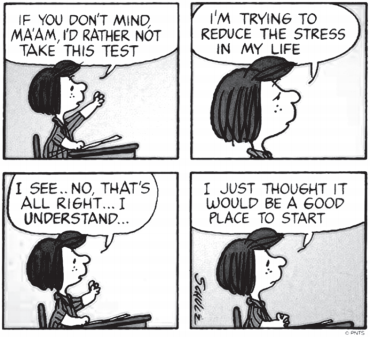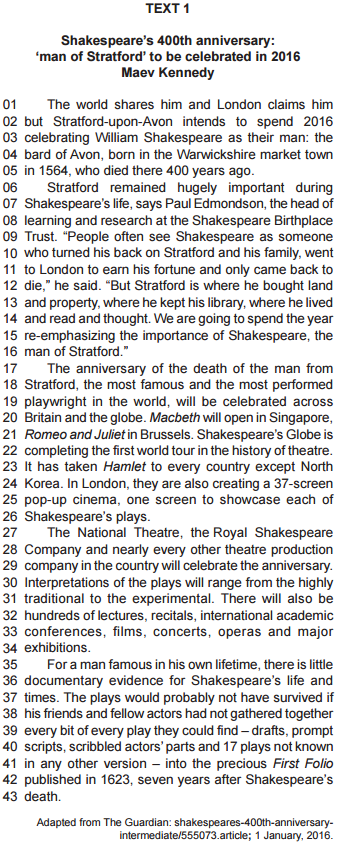Questões de Vestibular
Sobre sinônimos | synonyms em inglês
Foram encontradas 291 questões

Disponível em: https://i.pinimg.com/736x/52/44/12/5244127bd1ca02b0bd30a8f8db96875a--peanuts-cartoon-peanuts-snoopy.jpg Acesso em: 30 de ago. 2017.
De acordo com o TEXTO, na frase “I’m trying to reduce the stress in my life ”, a palavra reduce só NÃO é sinônimo
de:

Examine a tira para responder à questão.


THE HONEYBEE has... Disponível em: <www.bbc.co.uk/news/scienceenvironment-34749846>. Acesso em: 21 set. 2016.
INSTRUÇÃO: Responda à questão com base no texto abaixo.

Disponível em: https://www.gov.uk/government/news/impact-of-smartphones-on-behaviour-in-lessons-to-be-reviewed. Acesso em: 13 set. 2015
I - “However” (linha 09) poderia ser substituída, sem prejuízo de significado, por “Moreover”.
II - “Don’t take my word for it” (linha 12) equivale à “Não precisa acreditar em mim”.
III - “They” (linha 21) refere-se a “immigrants” (linha 21).
IV- A palavra “acknowledge“ pode ser usada como antônimo de “deny” (linha 23).
Estão corretas as afirmativas
( ) “Expat” has the same meaning of “immigrant”.
( ) The blog of “The Wall Street Journal” does not support the author’s point of view.
( ) Social class is one of the factors which differentiates an “expat” from an “immigrant”.
( ) The author is against the supremacist ideology.
A sequência correta de preenchimento dos parênteses, de cima para baixo, é
INSTRUÇÃO: Para responder à questão, considere o texto abaixo.

(Excerpt from Zen and the Art of Motorcycle Maintenance, By Robert M. Pirsig. New York: Harpertorch, 1974)
INSTRUÇÃO: Para responder à questão, considere o texto abaixo.

(Excerpt from Zen and the Art of Motorcycle Maintenance, By Robert M. Pirsig. New York: Harpertorch, 1974)



A QUESTÃO REFERE-SE AO TEXTO I
De acordo com o contexto, considere o significado das palavras nas opções abaixo:
I. “junk food” (L. 14) significa “comida sem valor nutritivo” .
II. “pupils” (L. 14) é sinômimo de “students”.
III. “ultimately” (L. 04) significa “ultimamente”.
IV. “committed” (L.14) significa “engajado”.
Estão corretas:




